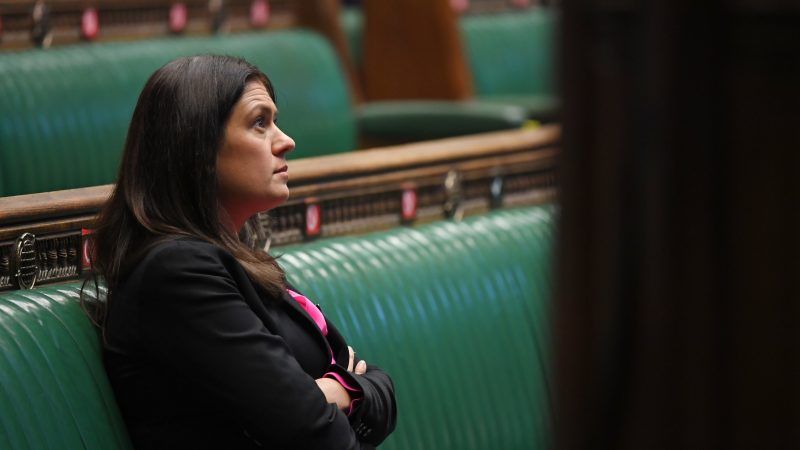
As the Conservative leadership contenders squabble between themselves, this is the moment for the Labour Party to produce a vision that places an equitable ‘levelling up’ policy and an emphasis on community empowerment at its heart – a commitment to tangible change with buy-in from politicians not just in parliament, but across the United Kingdom.
Shadow Levelling Up Secretary Lisa Nandy declared in July 2022 that levelling up is “dead”. However, by almost every metric worth measuring, it never had life breathed into it in the first place. After two and a half years, there is no evidence of improvements in health or educational outcomes, while investment in transport has been cut and regional divides have deepened.
Since the 2019 election, Conservative levelling up has been little more than a campaign slogan backed with piecemeal policy that lacked the dynamic vision needed to unleash positive change. A Johnson catchword that made ground by recognising the real challenges that face this country, it has failed to offer solutions. When the levelling up bill was released earlier this year, it reflected a combination of previously announced policies and vague targets – nothing that could tangibly move the country forward economically or fix the disconnect between communities and government. Senior Labour politicians have criticised levelling up, yet have struggled to get across a vision of what they would do differently.
It is clear to most that a minor redistribution of jobs is not the solution, nor is claiming to level up an area with no regard to the diverse and distinct needs of the place, whether that is Grimsby, Stoke, Cumbria or Cornwall. Meanwhile, government funding intended to tackle the issue has instead been given to places where the Tories’ political interests are best served – most notably under the Towns Fund – rather than where the money would be best utilised.
Neither of the Conservative leadership contenders Liz Truss and Rishi Sunak have set out their own vision for levelling up, and both have been criticised for gaffes relating to how they would take it forward. The programme will likely be left untouched as whoever wins the contest grapples for control of their party against the backdrop of a spiralling economic crisis.
The broader concept behind levelling up has to be about unlocking the potential of areas that have been held back by these often significant regional divides, with a recognition that Britain is not a homogenous country to govern. To level up one place is not to level down the other, it is about the balancing of opportunities and recognising the diversity of needs – whether that is in geography or demographics – to improve outcomes for all, across the likes of education, housing, public services or infrastructure. Following a decade of stagnant growth, low productivity and declining living standards, Labour has an opportunity to set out a vision that puts at its core rebalancing these divides and unshackling the areas that have been held back by them.
This will involve a reflection upon past faults of our own. In recent decades, Labour has failed to understand these divides and their implications, with emphasis instead placed on centralisation – whether in governance, infrastructure or economic settlement. Labour has also allowed the Tories to take the first steps towards further regional devolution, recognising the political potential in highlighting and addressing these challenges, therefore setting the narrative for what the solutions may be.
However, Labour is the only party that can make the changes that are needed to overcome these divides and equitably rebalance them. It is no coincidence that some of Labour’s best communicators – whether that be Nandy or Greater Manchester mayor Andy Burnham – are focused on redressing this issue and draw their strength from their steadfast representation of their regions and residents’ interests.
The best examples of Labour in power are currently seen in the Metro mayors, such as Burnham, Tracy Brabin, Oliver Coppard, Dan Norris and Steve Rotheram, who won their mandates fighting for local empowerment on a range of issues and against the imposition of policy from above with no community buy-in. As a party, Labour needs to utilise these figures and learn from them – regarding both the policies that they feel need addressing and the way in which they talk about them. Whether it is ‘Northern Powerhouse’ or ‘levelling up’ or whatever comes next, the Conservatives cannot be allowed a national monopoly on this – it is ground that Labour can stake a claim to, take forward and define.
This is a pivotal moment for the country following a pandemic where policy and resources were dictated ineffectively from the political centre. The government’s failure to recognise the different needs of areas damaged economies and undermined the delivery of good outcomes for public health. For all the talk of levelling up by this government, there has been no action or delivery, much like the previous government and the one before that. As the country faces down a lengthy recession with a struggling zombie government, Labour have an opportunity to set out their vision while making sure that the same mistakes are not repeated.




More from LabourList
Government announce SEND reform in schools white paper
SPONSORED: ‘Industrial hemp and the challenge of turning Labour’s priorities into practice’
‘A day is a long time in politics, so we need ‘action this day’’